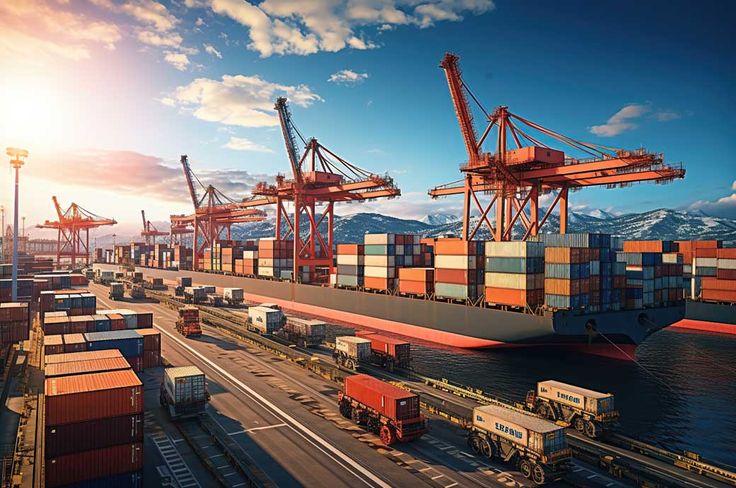The Nigerian maritime industry plays a crucial role in the country’s economic growth, with seaports serving as the primary gateway for international trade. Efficient clearance of goods at the ports is essential for facilitating commerce, ensuring timely delivery, and reducing costs for businesses and consumers. However, the introduction of the Single Window system by the Federal Government of Nigeria, aimed at improving efficiency and transparency, has ironically led to significant delays in clearing consignments.
Understanding the Single Window System
The Single Window system is a digital platform designed to streamline and automate the documentation process for importers and exporters. It integrates various government agencies into one online portal, allowing traders to submit and process required documents electronically. The initiative was intended to reduce bureaucracy, enhance coordination, and improve Nigeria’s ranking in global trade competitiveness.
Delays and Challenges Arising from the Single Window Implementation
Despite its intended benefits, the implementation of the Single Window system has introduced new inefficiencies, causing severe delays in cargo clearance. Several factors contribute to this problem:
- Technical and Systemic Failures: The platform has been plagued with frequent downtimes, slow processing speeds, and glitches that make it difficult for stakeholders to complete necessary transactions in a timely manner.
- Lack of Infrastructure and Poor Internet Connectivity: Many agencies and port operators struggle with inadequate digital infrastructure, making it challenging to access the system reliably. Poor internet connectivity further exacerbates the problem, leading to prolonged clearance times.
- Multiple Government Agency Interference: Instead of streamlining operations, the Single Window system has unintentionally created more bottlenecks due to overlapping functions of different regulatory agencies. Importers and clearing agents often have to deal with redundant verification processes from agencies such as the Nigeria Customs Service (NCS), the National Agency for Food and Drug Administration and Control (NAFDAC), and the Standards Organisation of Nigeria (SON).
- Corruption and Bureaucratic Inefficiencies: The manual intervention of officials at different clearance stages has undermined the efficiency of the system. Reports indicate that some officials deliberately create delays to extort bribes from importers and agents, negating the system’s purpose of promoting transparency.
- Lack of Proper Stakeholder Training: Many stakeholders, including clearing agents and customs officers, have not been adequately trained to navigate the system efficiently. This has resulted in widespread confusion, errors in document submission, and additional processing delays.
- Policy Inconsistencies and Frequent Changes: The Nigerian government has a history of implementing trade policies without adequate consultation with industry stakeholders. Frequent policy adjustments and lack of clear guidelines have further complicated the Single Window’s adoption and effectiveness.
Economic Consequences of Clearance Delays
The delays caused by the Single Window system have had a ripple effect on Nigeria’s economy:
- Increased Demurrage and Storage Costs: Importers incur high demurrage charges due to prolonged cargo dwell time, increasing the cost of doing business.
- Supply Chain Disruptions: Late clearance of consignments affects supply chains, leading to shortages of essential goods and inflationary pressures.
- Reduced Investor Confidence: Persistent inefficiencies deter foreign direct investment (FDI) in Nigeria’s maritime sector, as businesses seek more predictable trade environments in competing markets like Ghana and Togo.
- Loss of Government Revenue: Extended delays discourage formal trade, encouraging smuggling and revenue leakages that negatively impact the country’s customs revenue.
The Way Forward
To address these challenges and improve cargo clearance efficiency at Nigerian seaports, the following measures should be considered:
- Upgrade Digital Infrastructure: The government must invest in robust IT infrastructure to ensure that the Single Window platform functions optimally without frequent downtimes.
- Harmonization of Agencies’ Roles: Regulatory agencies should be streamlined, and their roles clearly defined to eliminate redundant processes and reduce bottlenecks.
- Stakeholder Training and Awareness: Adequate training programs for importers, clearing agents, and government officials will enhance the efficient use of the Single Window system.
- Anti-Corruption Measures: Strengthening anti-corruption mechanisms within the port system will help eliminate bureaucratic bottlenecks that contribute to unnecessary delays.
- Stable and Consistent Trade Policies: The government should ensure that policies surrounding the Single Window system are clear, consistent, and made in consultation with stakeholders to avoid frequent disruptions.
- Improved Internet Connectivity: Expanding internet coverage and ensuring reliable access to digital platforms will enhance the efficiency of online trade documentation.
Conclusion
While the Single Window system was introduced with the goal of streamlining trade processes, its implementation in Nigeria has resulted in significant delays in the clearance of consignments at seaports. Addressing the technical, bureaucratic, and infrastructural challenges will be crucial in transforming Nigeria’s maritime industry into a more efficient, transparent, and globally competitive sector. If effectively managed, the Single Window system could become a valuable tool in enhancing trade facilitation rather than a hindrance to economic progress.
